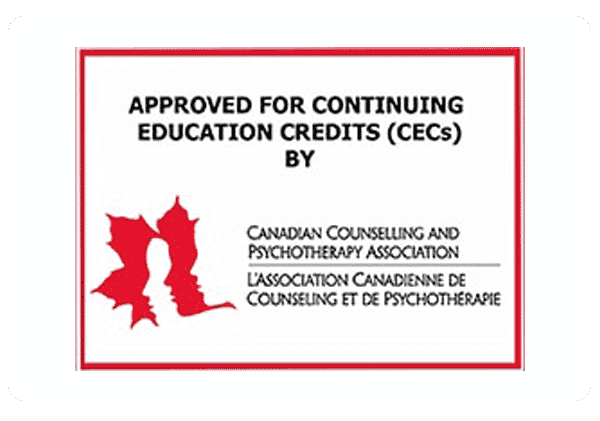Psychological Treatment of Generalized Anxiety Disorder and Perfectionism – Martin Antony
Generalized anxiety disorder GAD is a common condition, affecting around 3% individuals. People with GAD report anxiety and worry that is (1) excessive (i.e., out of proportion to the situation), (2) frequent (i.e., most days), (3) chronic (i.e., lasting at least 6 months), (4) pervasive (i.e., about a broad range of events and activities), and (5) difficult to control. Excessive worries in GAD often focus on work and school, finances, health and safety, relationships, minor matters, and various other life domains. In addition, the worries occur along with a number of associated symptoms, including feeling keyed up or on edge, fatigue, poor concentration, irritability, muscle tension, and poor sleep. A common feature of GAD is elevated perfectionism, at a level that may be associated with impaired functioning. People with GAD may worry about performing at a less-than-perfect level that could lead to failure, negative evaluation, or other unwanted consequences.
This presentation provides practical, step-by-step, evidence-based strategies for helping individuals to overcome difficulties with generalized anxiety, worry, and perfectionism. Participants will learn about a number of evidence-based treatments for GAD, including cognitive-behavioural therapy (CBT) targeting intolerance of uncertainty, metacognitive therapy, emotion regulation therapy, CBT enhanced with interpersonal approaches, and acceptance-based behaviour therapy. The latest approaches to treating clinical perfectionism will also be discussed. Read More
TRAINING information
Generalized anxiety disorder GAD is a common condition, affecting around 3% individuals. People with GAD report anxiety and worry that is (1) excessive (i.e., out of proportion to the situation), (2) frequent (i.e., most days), (3) chronic (i.e., lasting at least 6 months), (4) pervasive (i.e., about a broad range of events and activities), and (5) difficult to control. Excessive worries in GAD often focus on work and school, finances, health and safety, relationships, minor matters, and various other life domains. In addition, the worries occur along with a number of associated symptoms, including feeling keyed up or on edge, fatigue, poor concentration, irritability, muscle tension, and poor sleep. A common feature of GAD is elevated perfectionism, at a level that may be associated with impaired functioning. People with GAD may worry about performing at a less-than-perfect level that could lead to failure, negative evaluation, or other unwanted consequences.
This presentation provides practical, step-by-step, evidence-based strategies for helping individuals to overcome difficulties with generalized anxiety, worry, and perfectionism. Participants will learn about a number of evidence-based treatments for GAD, including cognitive-behavioural therapy (CBT) targeting intolerance of uncertainty, metacognitive therapy, emotion regulation therapy, CBT enhanced with interpersonal approaches, and acceptance-based behaviour therapy. The latest approaches to treating clinical perfectionism will also be discussed. Read More
Learning Objectives
By the end of the workshop, participants will be able to:
- Describe best practices in the assessment of GAD and perfectionism
- Describe several evidence-based treatments for GAD, including methods that focus on intolerance of uncertainty, metacognitive therapy, interpersonally focused CBT, emotion regulation therapy, and acceptance-based behavior therapy
- Describe evidence-based, cognitive-behavioural treatment for perfectionism
- Describe effective behavioural strategies for treating GAD and perfectionism, such as exposure therapy, relaxation-based approaches, and problem solving
- Describe effective cognitive strategies for treating GAD and perfectionism, such as cognitive restructuring and experiments
- Describe mindfulness and acceptance-based strategies for GAD and perfectionism
- Describe strategies for resolving ambivalence and promoting engagement during therapy
Schedule
Schedule (times are approximate and in Eastern Standard Time, USA)
Thursday April 13, 2023
12:00 pm – Start
12:00 – 1:30 pm – Overview of GAD and perfectionism; Psychological models of GAD and perfectionism; Assessment of GAD and perfectionism; Introduction to evidence-based treatments for GAD; Introduction to evidence-based treatments for perfectionism
1:30 – 1:45 pm – Break
1:45 – 3:00 pm – Cognitive strategies for GAD and perfectionism
3:00 pm – Finish
Friday April 14, 2023
12:00 pm – Start
12:00 – 1:30 pm – Exposure-based approaches; Problem solving therapy; Relaxation-based approaches
1:30 – 1:45 pm – Break
1:45 – 3:00 pm – Behavioural activation; Mindfulness and acceptance-based treatments; clinician-supported self-help; culturally adapted CBT; motivational enhancement strategies
3:00 pm – Finish
About the Speaker
 Dr. Martin M. Antony is professor and chair in the Department of Psychology at Toronto Metropolitan University and provincial clinical and training lead for the Ontario Structured Psychotherapy Program. Previously, he was founding director of both the Anxiety Treatment and Research Clinic and the Psychology Residency Program at St. Joseph’s Healthcare Hamilton. He is a fellow of the Royal Society of Canada, and a past president of the Canadian Psychological Association and the Association for Behavioral and Cognitive Therapies. He has published 33 books and over 300 scientific articles and chapters in areas related to cognitive behavior therapy and anxiety-related disorders. He has given more than 425 presentations to audiences across four continents, and has been interviewed, featured, or quoted more than 450 times in various print, radio, television, and online media outlets, including the CBC, Chatelaine Magazine, CNN, CTV, the Globe and Mail, National Post, New York Times, O (Oprah) Magazine, Prevention Magazine, Reader’s Digest, Scientific American Mind, Toronto Star, USA Today, Washington Post, and many others.
Dr. Martin M. Antony is professor and chair in the Department of Psychology at Toronto Metropolitan University and provincial clinical and training lead for the Ontario Structured Psychotherapy Program. Previously, he was founding director of both the Anxiety Treatment and Research Clinic and the Psychology Residency Program at St. Joseph’s Healthcare Hamilton. He is a fellow of the Royal Society of Canada, and a past president of the Canadian Psychological Association and the Association for Behavioral and Cognitive Therapies. He has published 33 books and over 300 scientific articles and chapters in areas related to cognitive behavior therapy and anxiety-related disorders. He has given more than 425 presentations to audiences across four continents, and has been interviewed, featured, or quoted more than 450 times in various print, radio, television, and online media outlets, including the CBC, Chatelaine Magazine, CNN, CTV, the Globe and Mail, National Post, New York Times, O (Oprah) Magazine, Prevention Magazine, Reader’s Digest, Scientific American Mind, Toronto Star, USA Today, Washington Post, and many others.
CPD/CE
CPD / CE / NBCC credits available: 6
How do I receive these credits?
The participant must pass the multiple-choice test with a minimum score of 80%. There is a maximum of three attempts to achieve this.
The post-test is included in the price of the training.
Does my regulatory body accept the credits?
The CPD & CE credits awarded can be used towards your declaration to any governing regulatory body in your state or country, provided the content is relevant to your discipline.
Our trainings are accredited by:
– The CPD Group, London
– Canadian Counselling and Psychotherapy Association
– Australian Counselling Association
– National Board of Certified Counselors (NBCC)






